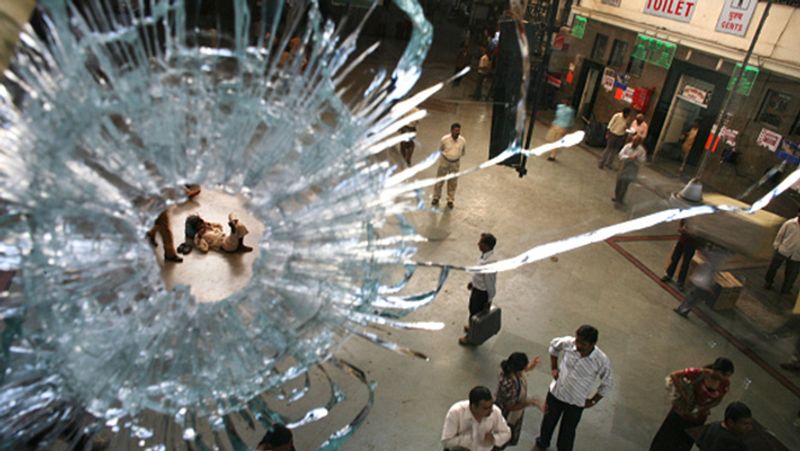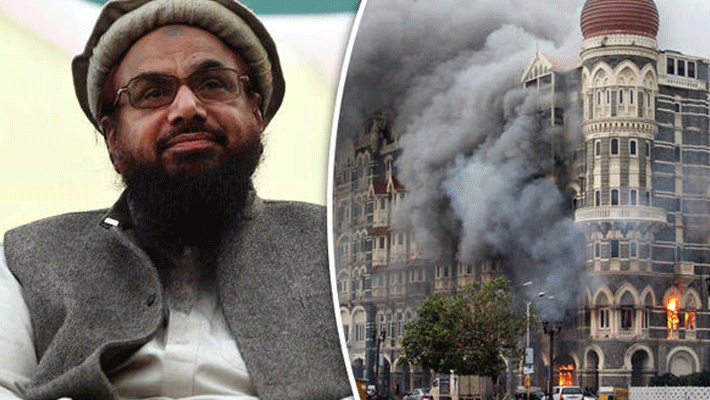synopsis
In a significant legal victory for India, a US court in California has approved the extradition of Pakistani-origin Canadian businessman Tahawwur Rana to India where he is sought for his involvement in the horrific 2008 Mumbai terror attacks.
In a significant legal victory for India, a US court in California approved the extradition of Pakistani-origin Canadian businessman Tahawwur Rana, who is wanted in India for his involvement in the horrifying 2008 Mumbai terror attacks.
Applauding the move as a 'big win for India', senior lawyer Ujjwal Nikam, the special public prosecutor in the 26/11 Mumbai terror attacks case, on Thursday asserted that Rana's extradition would take the lid off the entire criminal conspiracy behind the attacks that rocked the world.
Also read: US court approves extradition of 26/11 accused Tahawwur Rana to India
Speaking to Asianet Newsable, Nikam noted that the US court's approval is a great success for India in marshalling strong evidence against Rana in the US. "The order of the American court extraditing Tahawwur Rana (26/11 Mumbai terror attack accused) is a great victory for India. According to my knowledge, it is for the first time that the American government has heavily relied upon an Indian investigation agency's evidence," said Nikam.
India filed a case on June 10, 2020, requesting the 62-year-old Rana's temporary detention with a view to extradition. The extradition of Rana to India has the backing and approval of the Biden Administration.
Six Americans were among the 166 victims of the 2008 Mumbai terror strikes, which left a total of 166 people dead. Ten Pakistani terrorists had been laying siege to Mumbai for more than 60 hours starting on the evening of November 26.
The Indian government requested that Rana be extradited to India, where he is wanted for his role in the 2008 Mumbai terror attack, and the US court has granted that request.
WATCH: Terror decoded: Lashkar-e-Taiba featuring Ujjwal Nikam, Devika Rotawan - youngest survivor of 26/11 and US journalist Ray Locker

Ujjwal Nikam explains how Headley exposed Tahawwur Rana's role
Nikam added that Tahawwur Rana had also aided David Headley, another suspect in the conspiracy, in setting up a Mumbai office from where he later took the pictures of targets that were the subject of the attack on November 26, 2008.
"Before the attack, David Headley had visited Mumbai. He had taken photographs of the targets like the Taj Mahal Hotel, Trident, Nariman House, CST Station, etc. and handed them to Lashkar-e-Taiba operatives. An American court convicted David Headley for 35 years. it was a plea bargain agreement, whereby it was agreed between the American government and Headley that he will not be transferred either to India or Pakistan, but he can give the evidence. By using this plea bargain, we decided to tender pardon to Headley and accordingly we have made an approver giving us details of the criminal conspiracy," said Nikam.
"David Headley had named Tahawwur Hussain Rana because he was guided by Tahawwur Rana for opening an immigration office in Mumbai, and in pursuance of opening that office, David Headley had taken various photographs of the target palces. He had given a sensitive revelation disclosing the close links between Lashkar-e-Taiba (LeT), Jamaat-Ud-Dawa, and the Pakistan Army officials. David Headley has also produced certain email correspondence which was exchanged between LeT operatives as well as the Pakistanis, so I think the order of the extradition of Tahawwur Rana is very clinching evidence so far as opening the scope of the entire 26/11 conspiracy," the senior lawyer added.
Also read: Pakistan yet to deliver justice on 26/11 Mumbai terror attacks: India's MEA annual report
The 48-page court order dated May 16, which was released on Wednesday, read: "The Court has reviewed and considered all of the documents submitted in support of and in opposition to the Request, and has considered the arguments presented at the hearing, Judge Jacqueline Chooljian, US Magistrate Judge of the US District Court Central District of California."
There is an extradition treaty in place between India and the United States. The judge ruled that the extradition of Rana to India was entirely under the treaty's jurisdiction.

Tahawwur Rana's extradition a major breakthrough: Nikam
When asked about the significance of Rana's extradition in the 26/11 attacks case, Nikam said, "It is a major breakthrough because myself and three other Government of India's officials had visited Islamabad for seven days and we were very keen to see whether Pakistan is prosecuting the conspirators who had hatched the conspiracy for the 26/11 attacks on Mumbai. However, the Pakistani government asked for evidence. So, after examining David Headley, we have given the entire evidence, but Pakistan didn't act."
"I think this extradition order of Tahawwur Rana would help us in many ways for opening the entire gate of criminal conspiracy because Tahawwur Rana was working as a doctor earlier in Pakistan, and he was working in the Pakistani Army also for some time that's what David Headley said," Nikam added.
Also read: 14 years since 26/11: 'We should have reacted more boldly'
Headley, who turned an approver, had deposed before the Mumbai sessions court through a video-link from the US during the case trial.
In its May 16 order, the US court said it reviewed and considered all of the documents submitted in support of and in opposition to the request and the arguments presented at the hearing.
"Based on such review and consideration and for the reasons discussed herein, the court makes the findings set forth below, and CERTIFIES to the Secretary of State of the United States the extraditability of Rana on the charged offences that are the subject of the request," it said.

Nikam explains how long the extradition process can take and what next
When asked how long it would take for Rana's process to come through, Nikam stated that the 26/11 accused could appeal against the extradition, and it would be tough to highlight the exact timeline. However, Nikam noted that once the process is complete and Rana comes to India, the National Investigating Agency (NIA) will conduct a thorough investigation, and charges will be levelled against him accordingly.
The senior lawyer also noted that given the current turmoil in Pakistan, where they are dealing with problems of their own, Islamabad wouldn't have anything to say about Rana's extradition for now.
Also read: 14 years since 26/11: Needed, a National Security Policy
Rana was arrested in the US on an extradition request by India for his role in these attacks. The NIA is probing into his role in the 26/11 attacks by Pakistan-based Lashkar-e-Taiba terrorists in 2008. The NIA has said it is ready to initiate proceedings to bring him to India through diplomatic channels.
Ajmal Kasab, the lone surviving Pakistani gunman in the Mumbai carnage in which 166 persons were killed, was awarded a death sentence by a special Mumbai court in 2010 for the mass murders and waging war against India. He was hanged to death at the Yerwada jail in Maharashtra's Pune city in November 2012.
(With inputs from PTI)
)
 subscribe to Asianet News Whatsapp channel by clicking here.
subscribe to Asianet News Whatsapp channel by clicking here.